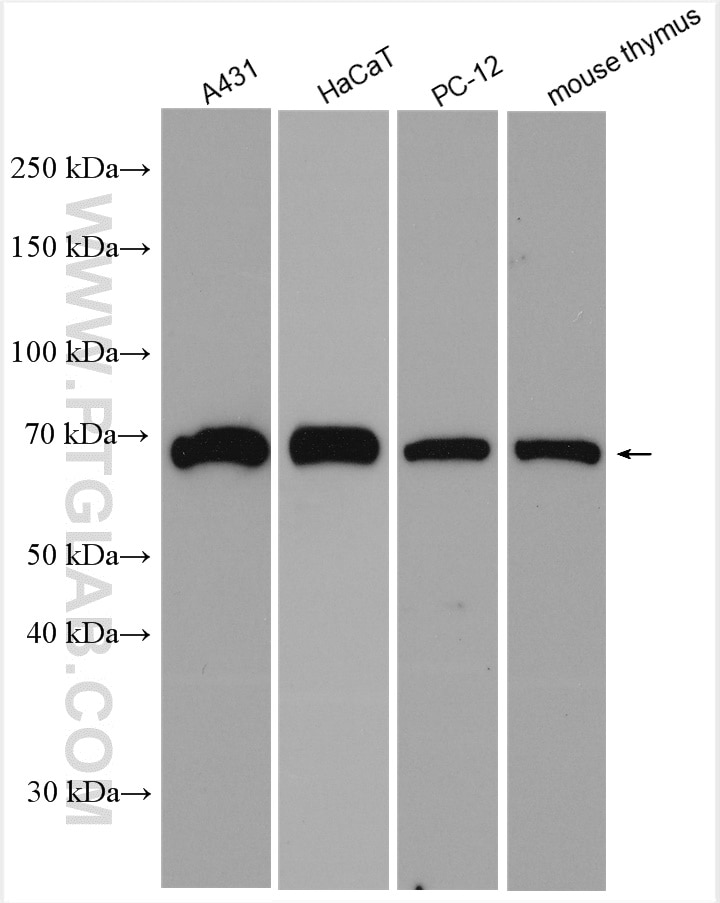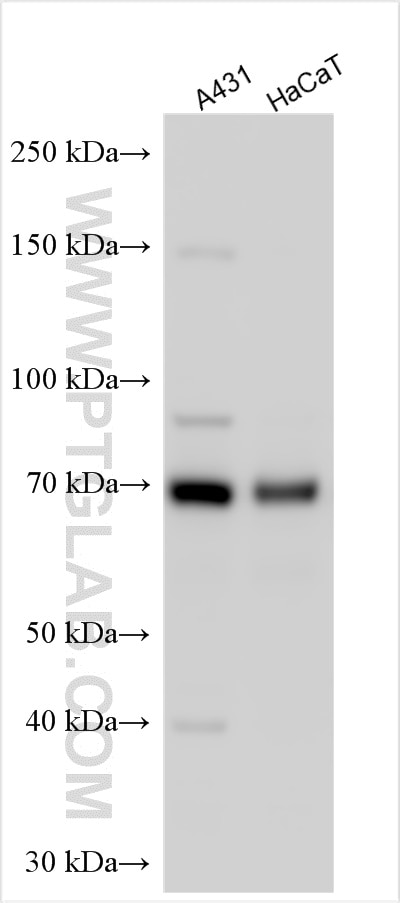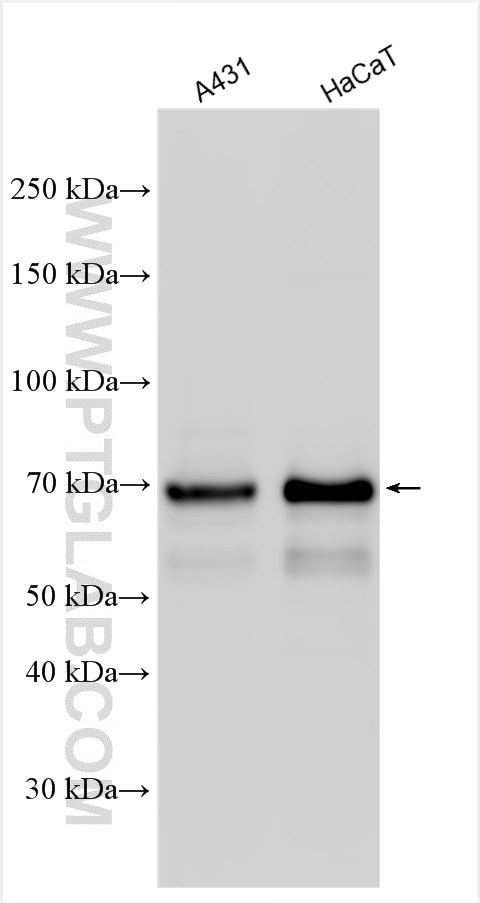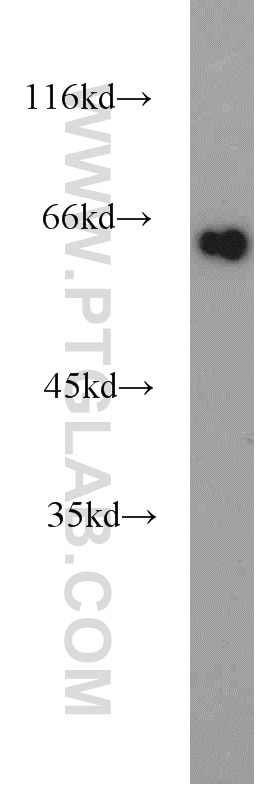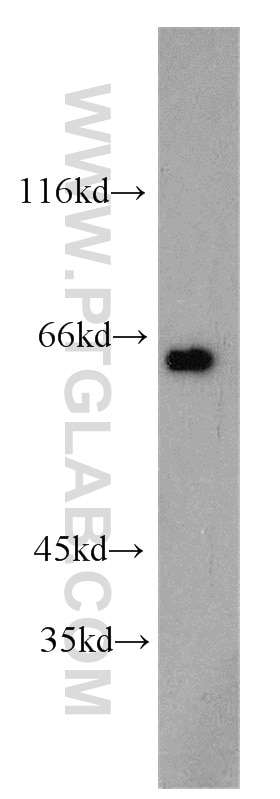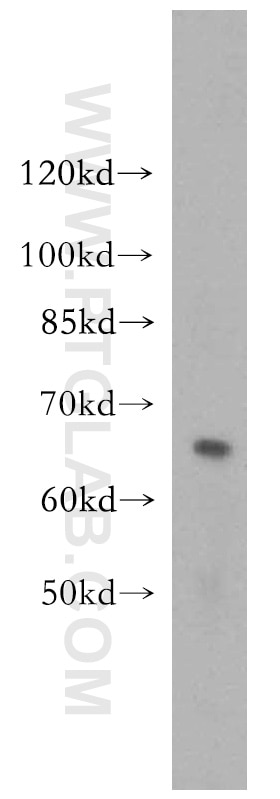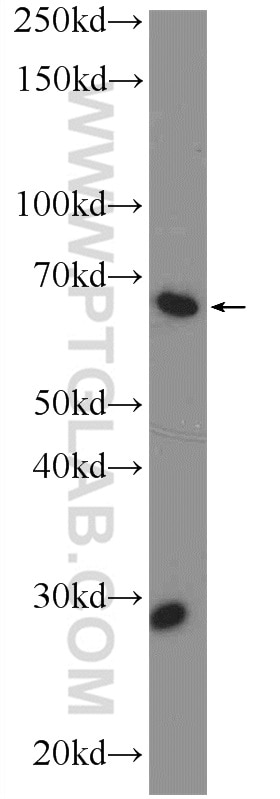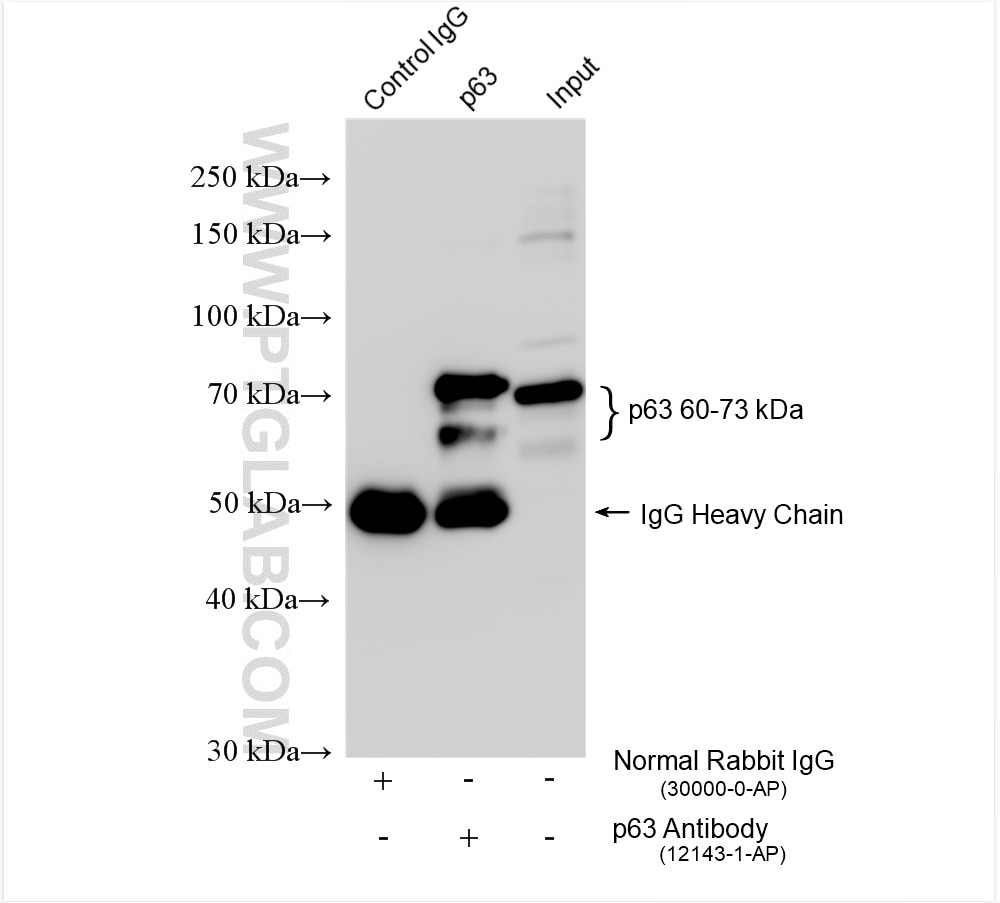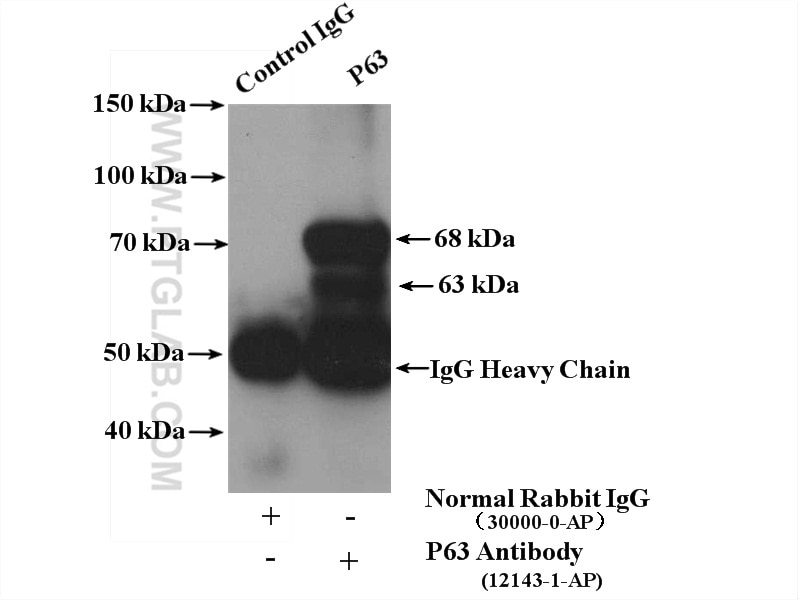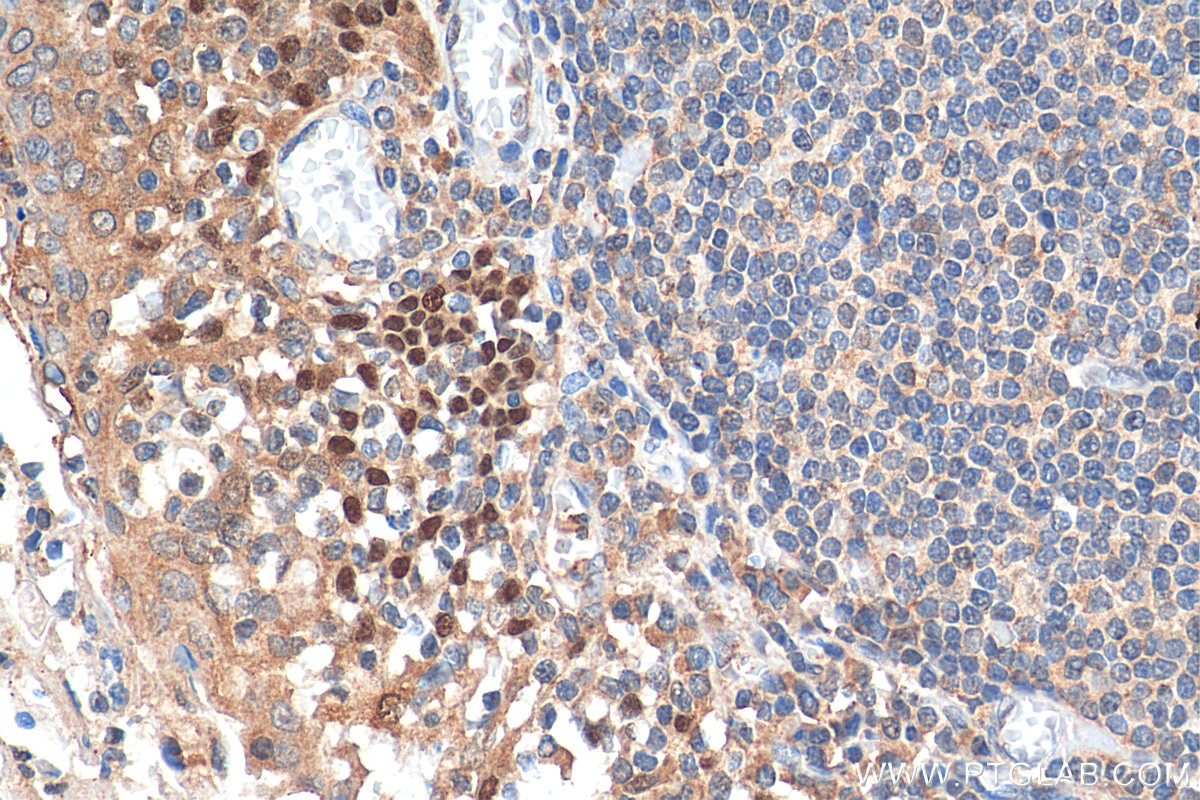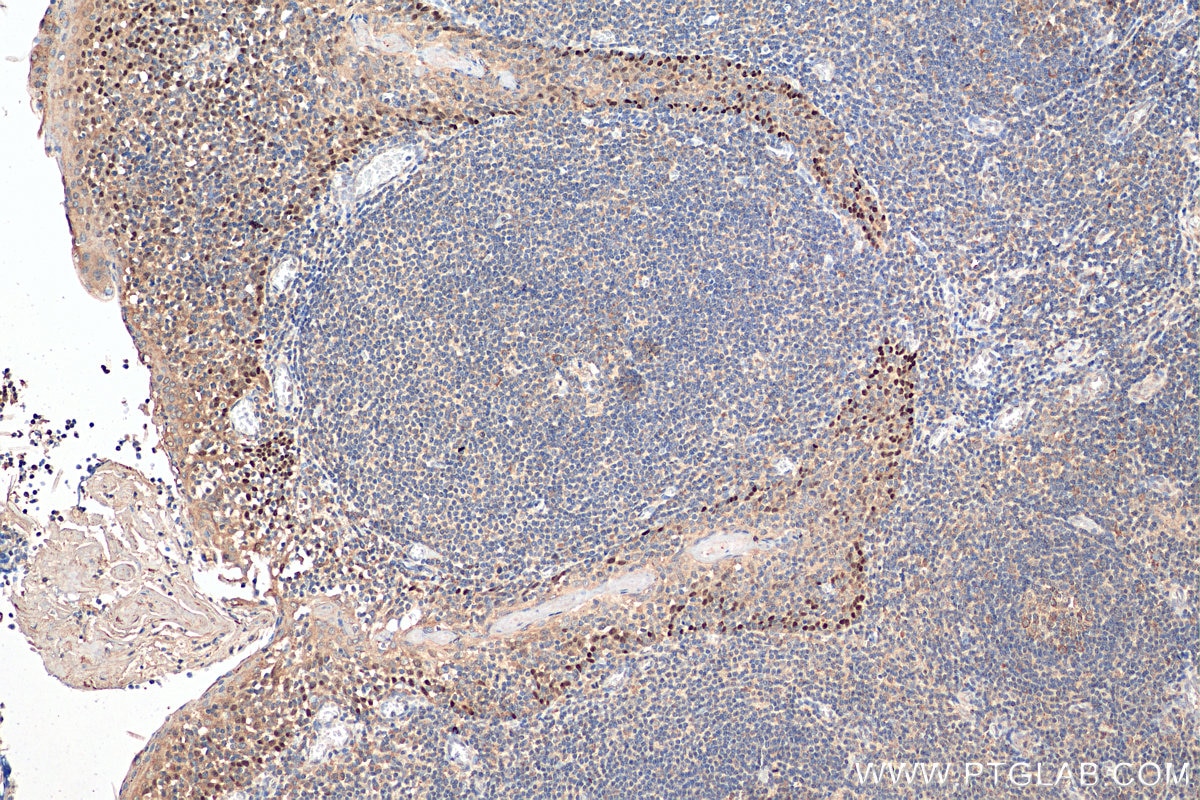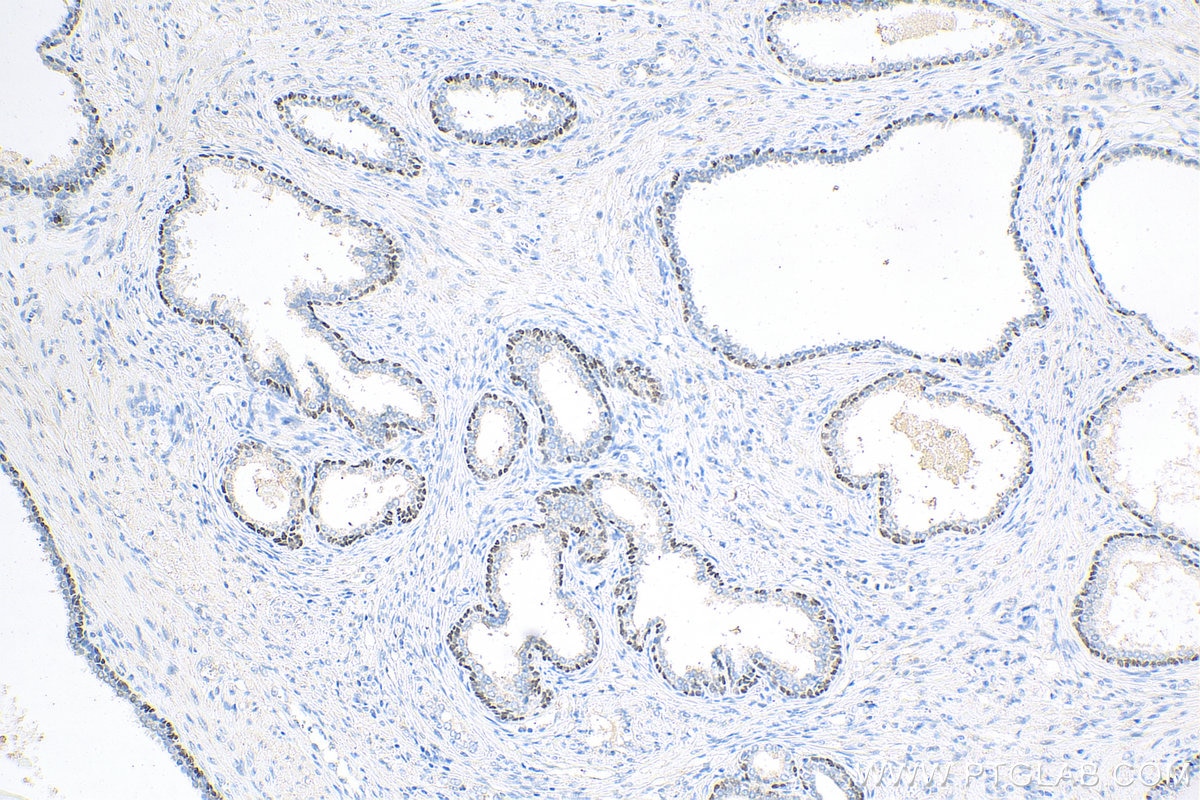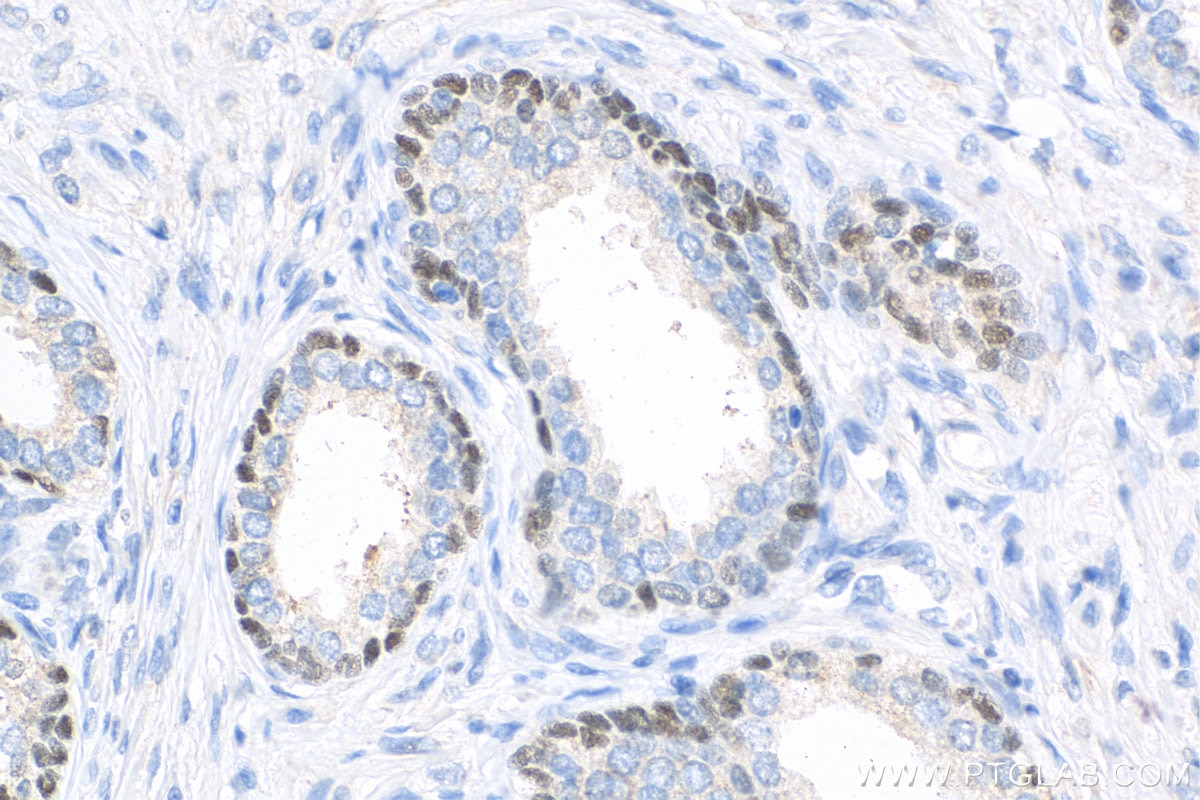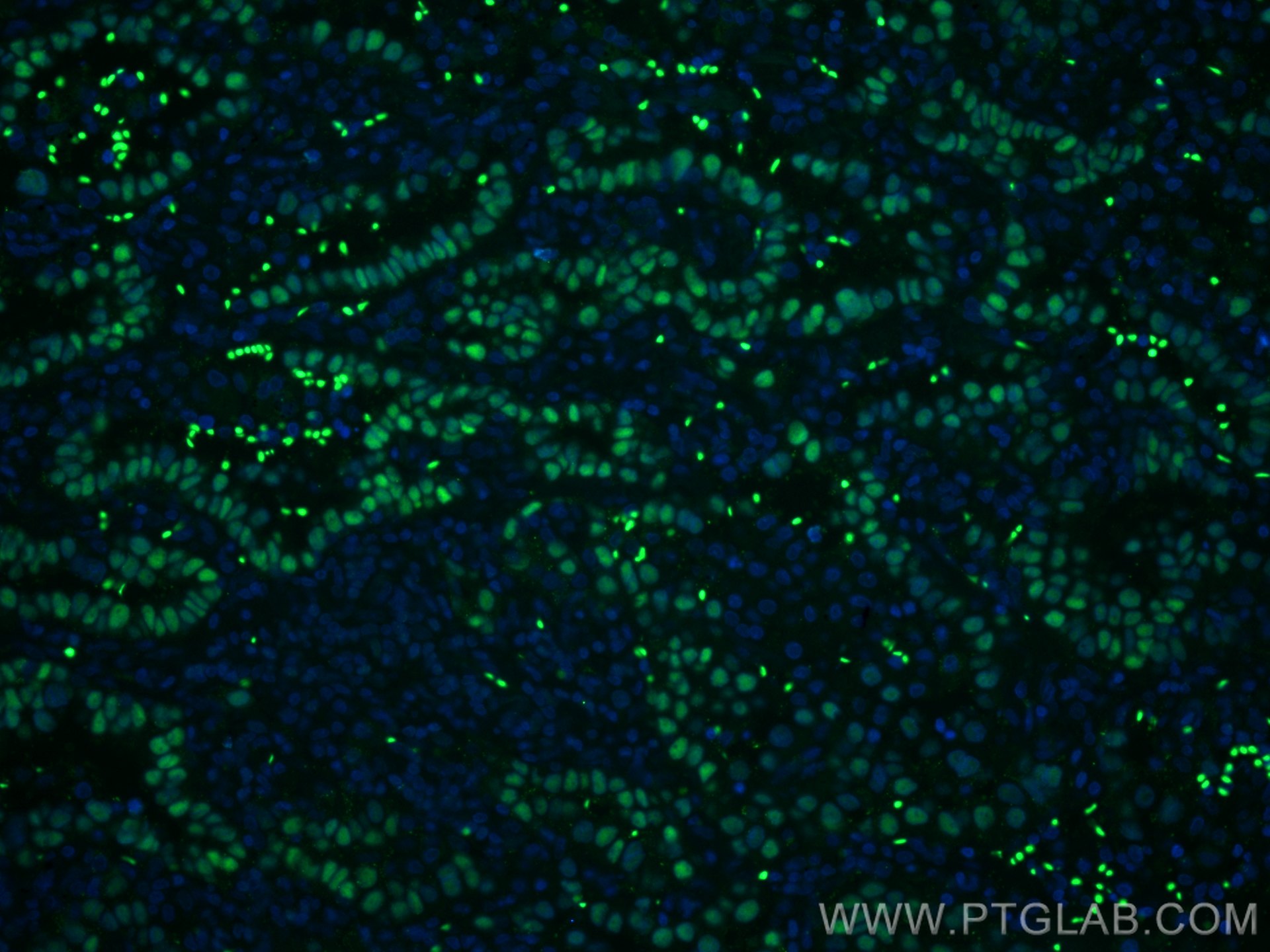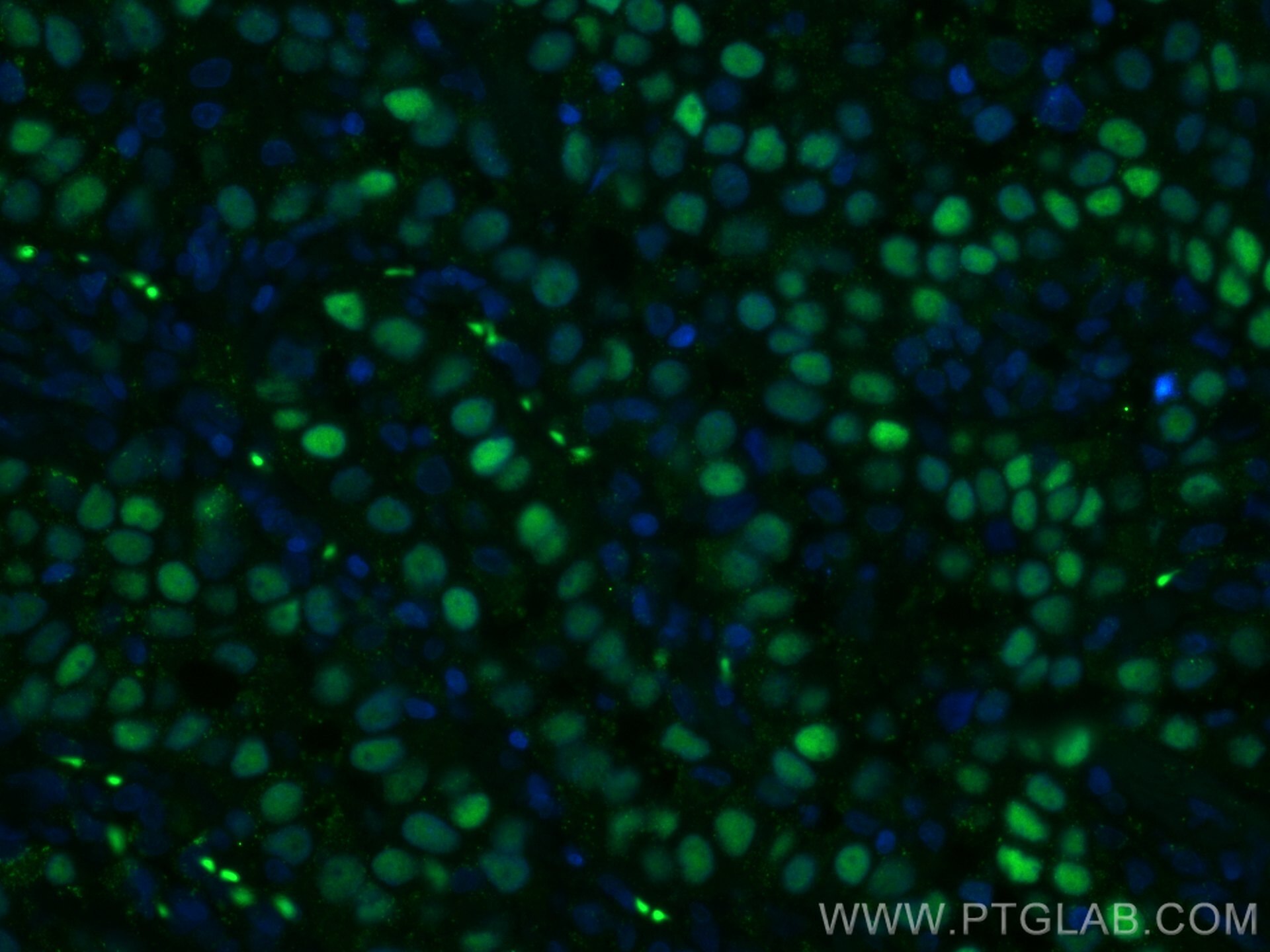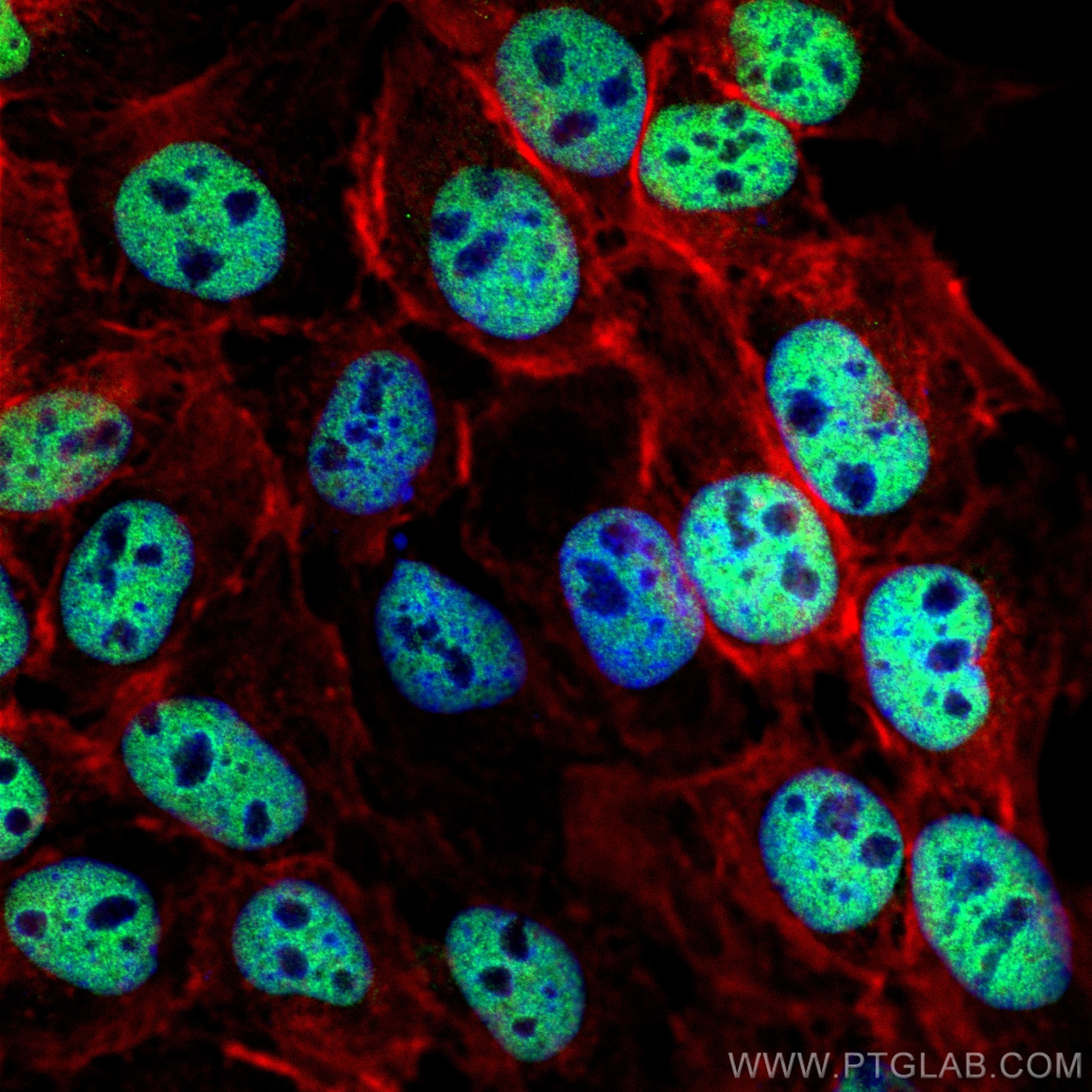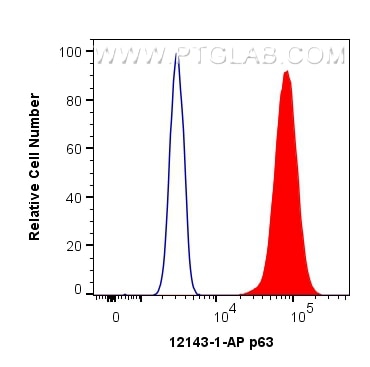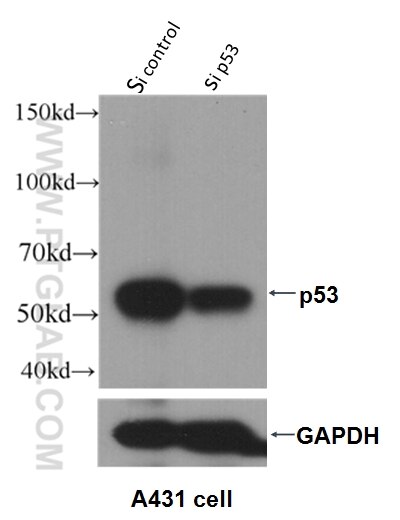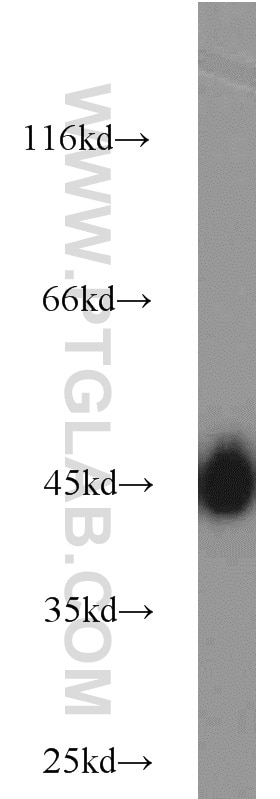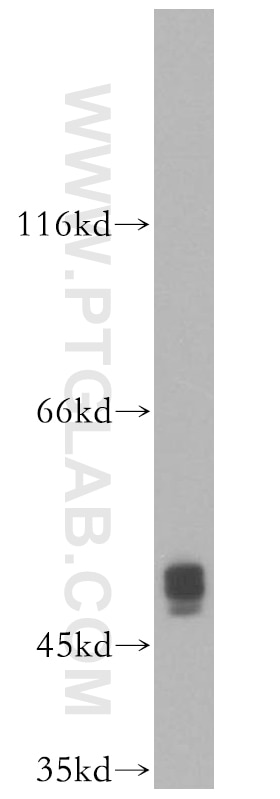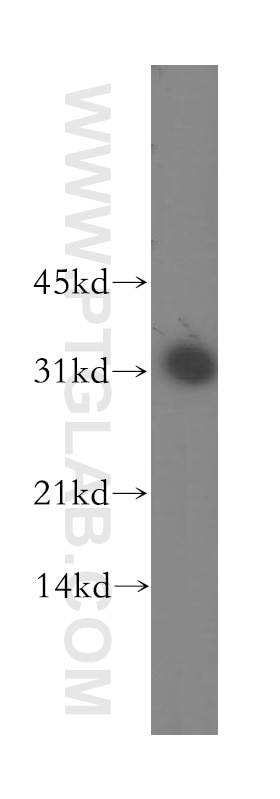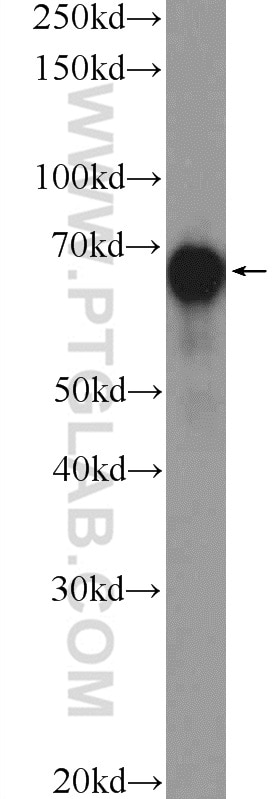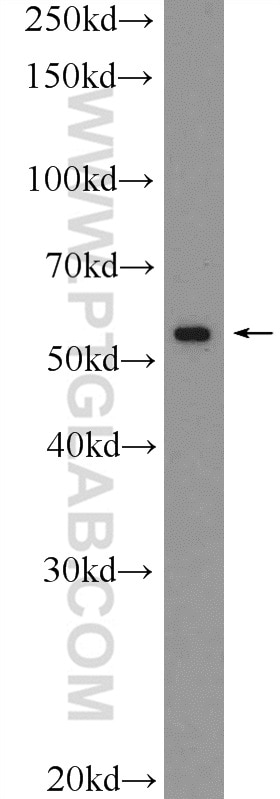- Phare
- Validé par KD/KO
Anticorps Polyclonal de lapin anti-p63
p63 Polyclonal Antibody for WB, IF/ICC, IF-P, FC (Intra), IP, ELISA
Hôte / Isotype
Lapin / IgG
Réactivité testée
Humain, rat, souris
Applications
WB, IF/ICC, IF-P, FC (Intra), IP, CoIP, ChIP, ELISA
Conjugaison
Non conjugué
N° de cat : 12143-1-AP
Synonymes
Galerie de données de validation
Applications testées
| Résultats positifs en WB | cellules A431, cellules HaCaT, cellules HeLa apoptosées, cellules PC-12, cellules U-937, tissu cardiaque de souris, tissu cardiaque humain, tissu de thymus de souris |
| Résultats positifs en IP | cellules A431, |
| Résultats positifs en IHC | tissu d'amygdalite humain, tissu de cancer de la prostate humain il est suggéré de démasquer l'antigène avec un tampon de TE buffer pH 9.0; (*) À défaut, 'le démasquage de l'antigène peut être 'effectué avec un tampon citrate pH 6,0. |
| Résultats positifs en IF-P | tissu de cancer du poumon humain, |
| Résultats positifs en IF/ICC | cellules A431, |
| Résultats positifs en FC (Intra) | cellules A431 |
Dilution recommandée
| Application | Dilution |
|---|---|
| Western Blot (WB) | WB : 1:500-1:3000 |
| Immunoprécipitation (IP) | IP : 0.5-4.0 ug for 1.0-3.0 mg of total protein lysate |
| Immunohistochimie (IHC) | IHC : 1:200-1:800 |
| Immunofluorescence (IF)-P | IF-P : 1:50-1:500 |
| Immunofluorescence (IF)/ICC | IF/ICC : 1:500-1:2000 |
| Flow Cytometry (FC) (INTRA) | FC (INTRA) : 0.40 ug per 10^6 cells in a 100 µl suspension |
| It is recommended that this reagent should be titrated in each testing system to obtain optimal results. | |
| Sample-dependent, check data in validation data gallery | |
Applications publiées
| KD/KO | See 3 publications below |
| WB | See 11 publications below |
| IF | See 11 publications below |
| IP | See 1 publications below |
| CoIP | See 1 publications below |
| ChIP | See 1 publications below |
Informations sur le produit
12143-1-AP cible p63 dans les applications de WB, IF/ICC, IF-P, FC (Intra), IP, CoIP, ChIP, ELISA et montre une réactivité avec des échantillons Humain, rat, souris
| Réactivité | Humain, rat, souris |
| Réactivité citée | rat, Humain, souris |
| Hôte / Isotype | Lapin / IgG |
| Clonalité | Polyclonal |
| Type | Anticorps |
| Immunogène | p63 Protéine recombinante Ag2791 |
| Nom complet | tumor protein p63 |
| Masse moléculaire calculée | 680 aa, 77 kDa |
| Poids moléculaire observé | 63-68 kDa |
| Numéro d’acquisition GenBank | BC039815 |
| Symbole du gène | TP63 |
| Identification du gène (NCBI) | 8626 |
| Conjugaison | Non conjugué |
| Forme | Liquide |
| Méthode de purification | Purification par affinité contre l'antigène |
| Tampon de stockage | PBS avec azoture de sodium à 0,02 % et glycérol à 50 % pH 7,3 |
| Conditions de stockage | Stocker à -20°C. Stable pendant un an après l'expédition. L'aliquotage n'est pas nécessaire pour le stockage à -20oC Les 20ul contiennent 0,1% de BSA. |
Informations générales
TP63, also named KET, P63, P73H, P73L and TP73L, belongs to the p53 family. It is a homologue of the tumor suppressor p53 and p73 genes. It is involved in malignancy acquisition and maintenance of cells. Unlike p53, the p63 gene encodes multiple isotypes with remarkably divergent abilities to transactivate p53 reporter genes and induce apoptosis. TP63 acts as a sequence specific DNA binding transcriptional activator or repressor. TP63 has 12 isoforms with MW 40kd(P40), 50kd(P60),63kd(P63) and 73kd(P73L). It is Nuclear stain.
Protocole
| Product Specific Protocols | |
|---|---|
| WB protocol for p63 antibody 12143-1-AP | Download protocol |
| IHC protocol for p63 antibody 12143-1-AP | Download protocol |
| IF protocol for p63 antibody 12143-1-AP | Download protocol |
| IP protocol for p63 antibody 12143-1-AP | Download protocol |
| FC protocol for p63 antibody 12143-1-AP | Download protocol |
| Standard Protocols | |
|---|---|
| Click here to view our Standard Protocols |
Publications
| Species | Application | Title |
|---|---|---|
Nucleic Acids Res Activation of bivalent factor DLX5 cooperates with master regulator TP63 to promote squamous cell carcinoma.
| ||
Cell Rep A Wnt-induced lncRNA-DGCR5 splicing switch drives tumor-promoting inflammation in esophageal squamous cell carcinoma | ||
Oncogene TP53, CDKN2A/P16, and NFE2L2/NRF2 regulate the incidence of pure- and combined-small cell lung cancer in mice. | ||
Elife Chloride channels regulate differentiation and barrier functions of the mammalian airway. | ||
Oncogene Circulating IGF-1 promotes prostate adenocarcinoma via FOXO3A/BIM signaling in a double-transgenic mouse model. |
Avis
The reviews below have been submitted by verified Proteintech customers who received an incentive forproviding their feedback.
FH Tanusree (Verified Customer) (12-18-2019) | Product worked well in WB at 1:500 dilution
|
FH Kui (Verified Customer) (09-19-2019) | Best P63 Ab I can find so far.
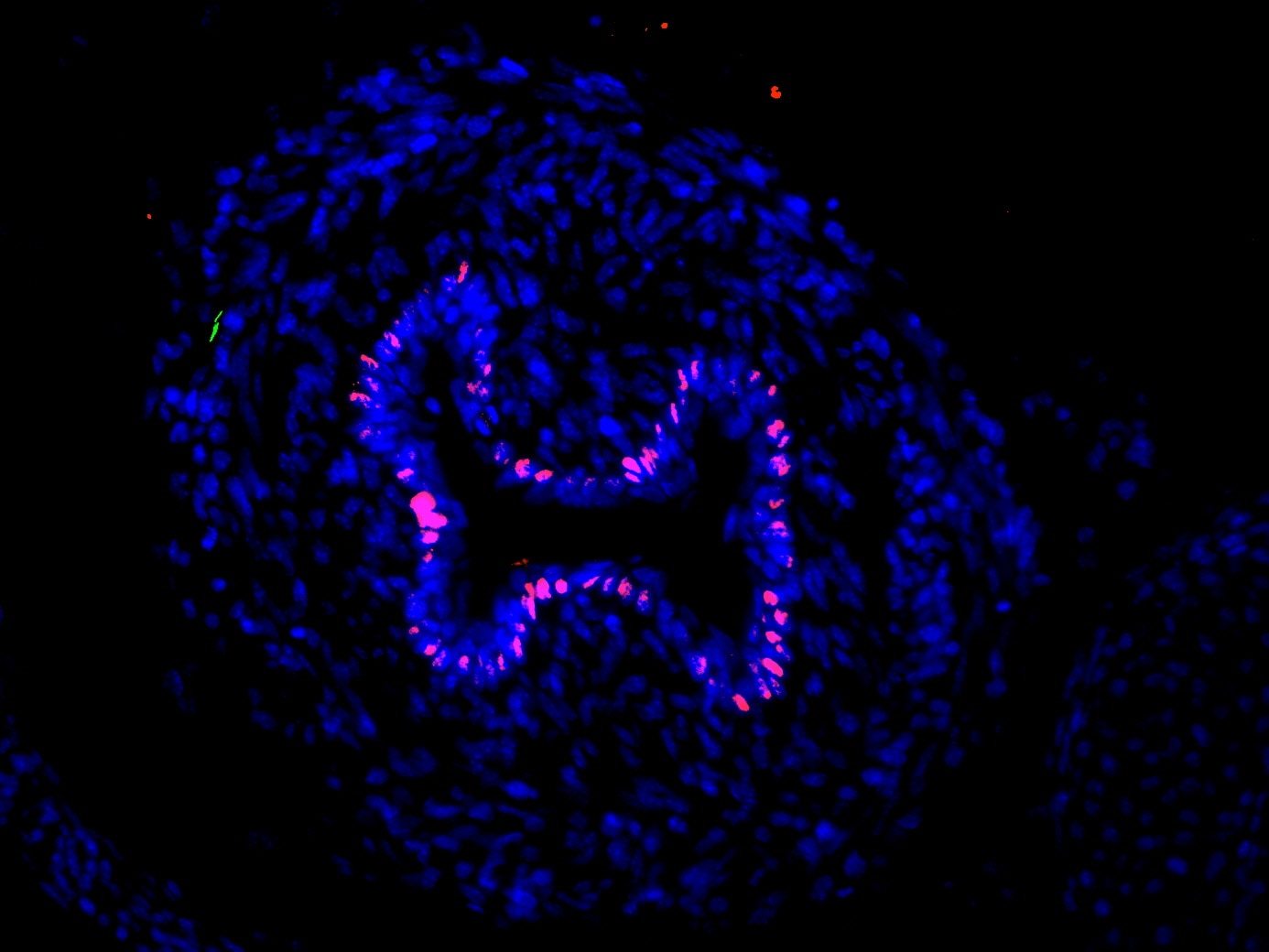 |
